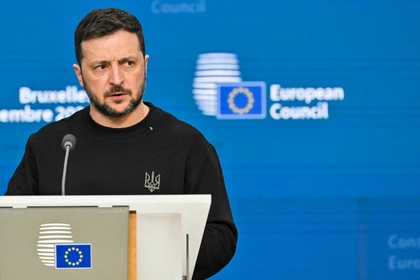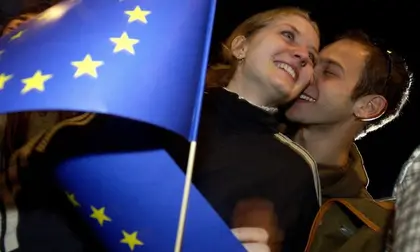On 1 May 2004, the European Union gained ten new member states when Estonia, Latvia, Lithuania, Malta, Poland, Slovakia, Slovenia, the Czech Republic, Hungary and Cyprus joined. What are the results?
Today we are the West
JOIN US ON TELEGRAM
Follow our coverage of the war on the @Kyivpost_official.
Lidové noviny sums up:
“Measuring the results of these twenty years is in fact surprisingly easy. The great success of Czech EU membership is characterised by everything that has to do with freedom. Specifically, it's about the free movement of people, goods and capital. Nobody misses the former passport controls. Older people may remember that in the early 1990s we had to apply for entry visas before travelling to most Western countries, including neighbouring Germany. Now we ourselves are the West for citizens of Eastern European countries.”
Stronger together
Estonia benefits from the EU, but the EU also benefits from Estonia, writes Postimees:
“The European Union is now part of our everyday life - many things have been and are being built with EU funds; our schoolchildren, university students and professionals go to Europe to advance their careers and knowledge. ... Over 20 years Estonia has received around 20 billion euros from the EU. An entire generation has grown up within the European Union. Estonia's most notable initiatives in the European Union include building up the digital single market and establishing a European digital identity, strengthening European defence capabilities and, of course, working tirelessly for Ukraine.”

Zelensky Says Trump and EU Must Work Together to Secure Peace
Developing a joint identity
Diena takes stock of the 20 years since Latvia joined the EU:
“We have come a long way since 1 May 2004, and have lost the illusions of a rapid and general increase in the prosperity of Latvian society. We have also lost the illusion that the current affairs of our country are considered in Brussels and Strasbourg as priorities for the EU. ... However, the decision taken at that time to join the EU has undoubtedly resulted in the identity of the Latvian nation developing in unison with the European identity, and our country has not been left stuck in the middle between East and West.”
Unity doesn't mean uniformity
Hungary's Minister for Europe János Bóka explains in Magyar Nemzet the Orbán government's course on EU policy:
“Europe can only be united in diversity. Our membership of the EU does not oblige us to homogeneity, but to cooperation. ... The hegemony of opinion that we are experiencing in the EU today is also a crisis phenomenon that must be countered by a culture of tolerance and consensus-building. The real enemies of Europe are not those who offer alternative European solutions in response to failures and crises. The enemies of Europe are those who stifle political debate and exert political and financial pressure to force member states with a different point of view to adapt.”
Double standards
Die Presse is sceptical that the reservations vis-à-vis Eastern European countries have been overcome:
“Prejudices are still lurking beneath the surface, as the (substantively justified) criticism of the illiberal developments in Budapest and Warsaw has shown - criticism that was and still is expressed with far less force in the case of similar developments in Rome, The Hague or Copenhagen. And yes, as far as institutional practice is concerned, for example when it comes to filling posts in the EU, Central Eastern Europeans are still underrepresented.”
You can also highlight the text and press Ctrl + Enter






